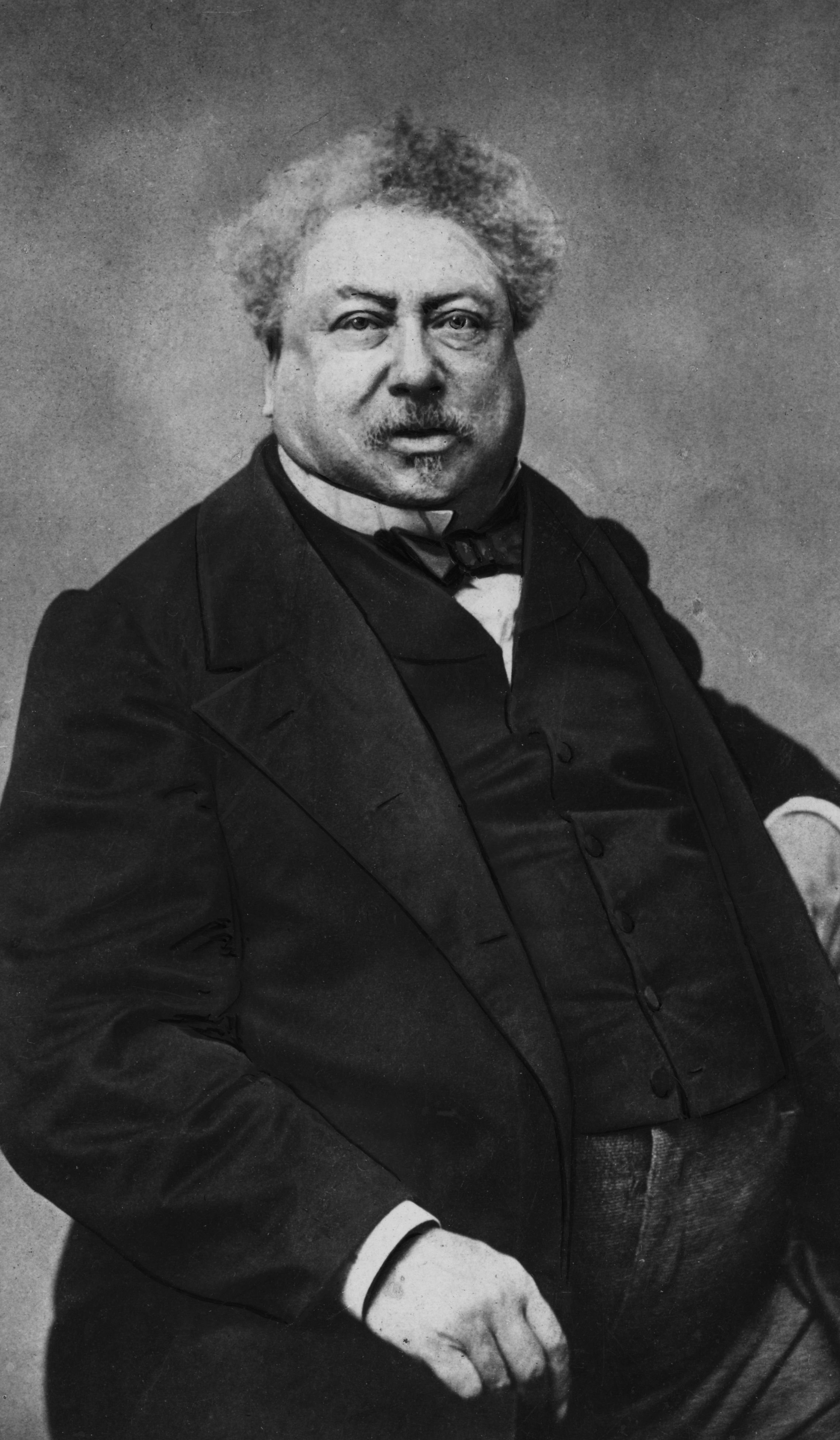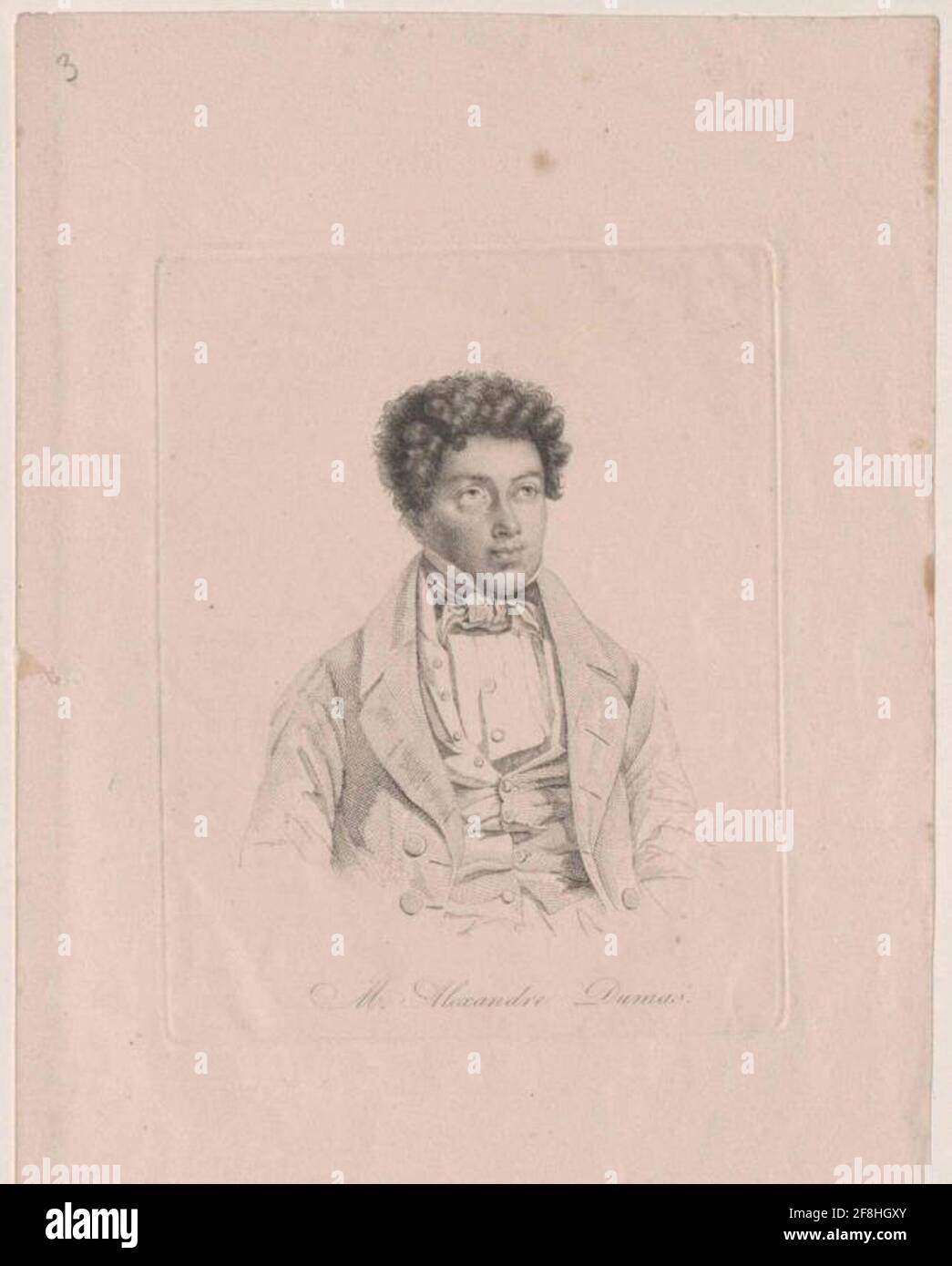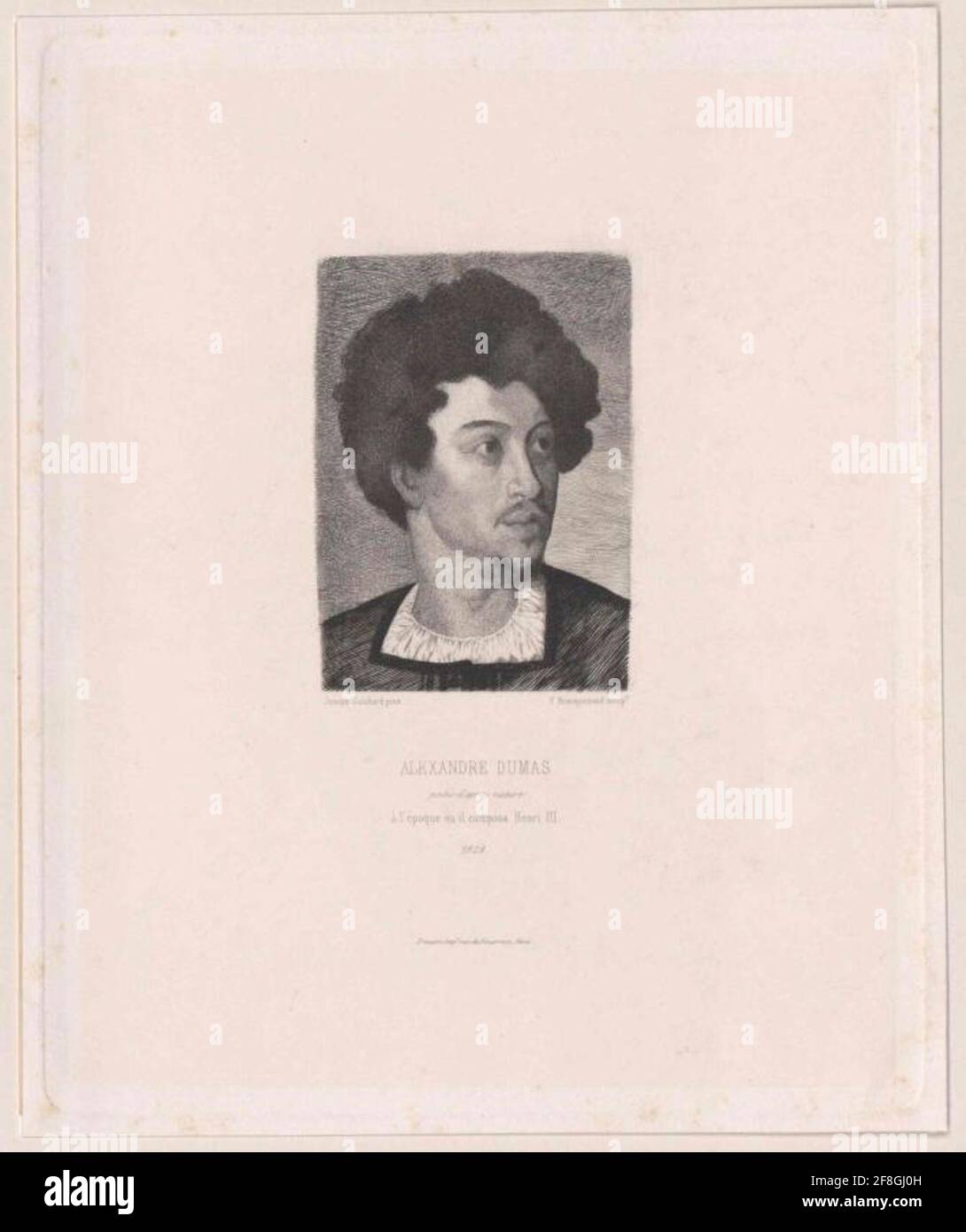Alexander Dumas Black: Exploring A Literary Giant's Heritage
Have you ever wondered about the rich and varied background of Alexandre Dumas, the famous writer? His stories, like "The Three Musketeers" and "The Count of Monte Cristo," are known around the globe. Yet, a part of his own life story often gets less attention. It's about his family roots and how they shaped the person he became.
People often picture Dumas as a typical French author, but his family tree reached far beyond France. His ancestry included African heritage, a detail that was quite significant in his time. This part of his identity adds a deeper layer to his remarkable life and literary contributions, you know.
Learning about Alexander Dumas's Black heritage helps us see his accomplishments in a new way. It shows us the challenges he faced and the strength he possessed. It also gives us a fresh look at the society he lived in, and how identity played a part, basically.
- Los Angeles Is Home To The Largest And Most Expensive Residence In The World
- Susana Gimenez Net Worth
Table of Contents
- Who Was Alexander Dumas?
- The Roots of His Ancestry
- Facing the World: Dumas and Race in 19th-Century France
- Alexander Dumas's Impact on Literature and Identity
- Frequently Asked Questions About Alexander Dumas's Heritage
Who Was Alexander Dumas?
Alexandre Dumas père, as he is often known, was a French writer. He lived from 1802 to 1870. He created many stories that are still very popular today, you know.
His works include adventure novels, historical romances, and plays. He had a way with words that captivated readers. His stories often featured brave heroes and exciting plots, really.
He was a very productive writer, publishing hundreds of books and plays. His output was quite something, and he worked tirelessly, actually.
Dumas's stories transported readers to different times and places. They offered thrills and drama, which people loved. He was, in a way, a master storyteller.
His tales continue to be adapted into films, television shows, and even musicals. This shows how much they resonate with people, even now, basically.
Personal Details and Bio Data
| Detail | Information |
|---|---|
| Full Name | Dumas Davy de la Pailleterie |
| Known As | Alexandre Dumas père (father) |
| Birth Date | July 24, 1802 |
| Birth Place | Villers-Cotterêts, Aisne, France |
| Death Date | December 5, 1870 |
| Death Place | Puys, near Dieppe, France |
| Occupation | Novelist, Playwright |
| Notable Works | The Three Musketeers, The Count of Monte Cristo |
| Father's Name | Thomas-Alexandre Dumas |
| Mother's Name | Marie-Louise Élisabeth Labouret |
The Roots of His Ancestry
The story of Alexander Dumas's heritage begins with his father, Thomas-Alexandre Dumas. He was a truly remarkable figure in his own right, you know.
Thomas-Alexandre was born in Saint-Domingue, which is now Haiti. His mother was a Black enslaved woman named Marie-Cessette Dumas. His father was a French nobleman, Antoine Davy de la Pailleterie, so.
This mixed heritage made Thomas-Alexandre a person of color. He was brought to France as a child. His father eventually recognized him as his son, which was a big deal, really.
Thomas-Alexandre went on to have an extraordinary military career. He became a general in the French Revolutionary Wars. This was a very high rank for anyone, let alone someone of his background, basically.
He was a skilled soldier and a brave leader. His accomplishments on the battlefield were widely recognized. He served with distinction under Napoleon, you know.
So, Alexander Dumas, the writer, was the son of this celebrated general. This connection meant he carried a very unique family history. It was a history of both nobility and African roots, in a way.
General Dumas: A Legacy Forged
General Thomas-Alexandre Dumas's life was full of drama and achievement. He rose through the ranks in the French army. He earned the respect of his peers, actually.
He was known for his physical strength and courage. Stories about his daring feats became quite famous. He was, you know, a true hero to many.
His military service took him across Europe. He fought in many important campaigns. His contributions were significant for France, really.
However, his mixed heritage also brought challenges. He faced prejudice and discrimination at times. This was a common experience for people of color, even those with high status, in that period, apparently.
Despite these difficulties, he continued to serve his country with honor. His legacy as a military leader is something his son, Alexander, surely drew upon. It was a source of great pride, perhaps.
His story shows the complex realities of race and status in 18th and 19th-century Europe. It highlights the struggles and triumphs of individuals. He lived a life that was, in some respects, quite extraordinary.
A Lineage Across Continents
The family history of Alexander Dumas stretches from the Caribbean to France. It links different cultures and experiences. This geographical spread is quite interesting, really.
His grandmother, Marie-Cessette, lived on a plantation in Saint-Domingue. Her life was, in a way, tied to the system of slavery. This was a harsh reality of the time, obviously.
His grandfather, the French nobleman, had traveled to the colony. Their connection led to the birth of Thomas-Alexandre. This crossing of paths was quite unusual, you know.
When Thomas-Alexandre came to France, he entered a different world. He gained an education and opportunities. This was a significant shift for him, pretty much.
The Dumas family history, therefore, represents a blend of worlds. It shows the movement of people and ideas across oceans. It's a testament to diverse origins, in a way.
This background gave Alexander Dumas a unique perspective. It likely influenced his storytelling, even if indirectly. He had a deep well of human experience to draw from, essentially.
Facing the World: Dumas and Race in 19th-Century France
Alexander Dumas lived in a society that was very aware of race. Even though France had abolished slavery, prejudice still existed. People often judged others based on their appearance, you know.
Dumas himself had features that hinted at his African ancestry. His skin tone was darker than many Europeans. This made him stand out, sometimes, apparently.
He was a public figure, a famous writer. This meant his background was often discussed. Not all of these discussions were kind, so.
Some people in society tried to belittle him. They would make fun of his appearance. They would use his heritage against him, basically.
He faced insults and unfair treatment. This happened even as he achieved great success. It shows the persistence of bias, you know.
Despite these challenges, Dumas carried himself with dignity. He did not let these comments stop him. He kept creating his wonderful stories, really.
Societal Perceptions and Challenges
In 19th-century France, ideas about race were complex. There was a growing awareness of different ethnic groups. But there were also many stereotypes, you know.
People of mixed heritage often occupied a difficult space. They were not fully accepted by all parts of society. They faced unique pressures, pretty much.
Dumas's experiences reflect these broader societal attitudes. He was a celebrated artist, yet he could not escape prejudice. It was a constant presence for him, in a way.
He might have been seen as an outsider by some. His success could have even made some people more resentful. This is often how prejudice works, you know.
He once famously responded to a racial slur. He said, "My father was a mulatto, my grandfather was a Negro, and my great-grandfather was a monkey. You see, sir, my family begins where yours ends." This shows his sharp wit and pride, frankly.
This kind of response shows his strength of character. He did not back down from those who tried to diminish him. He owned his identity, essentially.
How Heritage Shaped His Stories
It is difficult to say exactly how Dumas's heritage shaped his writing. He rarely wrote directly about race in his famous novels. His stories were mostly historical adventures, you know.
However, some scholars suggest subtle influences. Perhaps his characters, like Edmond Dantès, who faces injustice, reflect his own experiences. There might be echoes of his life in their struggles, really.
His works often feature themes of justice, revenge, and social mobility. These themes might have resonated with him personally. They could have been informed by his unique background, in a way.
He wrote about characters who overcome great odds. They often rise from humble beginnings to achieve greatness. This mirrors his own family's journey, arguably.
The idea of hidden identities and secret pasts appears in his books. This could be a reflection of his own complex family history. It is a compelling thought, you know.
While not overtly about race, his stories certainly celebrate courage and resilience. These are qualities he surely possessed himself. They are qualities that transcend any single background, honestly.
Alexander Dumas's Impact on Literature and Identity
Alexander Dumas's literary output is truly astounding. His stories have captured imaginations for generations. They remain popular around the world, you know.
His novels helped define the historical adventure genre. They showed how exciting history could be. He made the past come alive for readers, really.
Beyond his stories, his life itself serves as an inspiration. He was a person of mixed heritage who achieved immense success. This was during a time when such success was not guaranteed for people like him, basically.
He proved that talent and hard work can overcome many obstacles. His achievements speak volumes. They show what is possible, you know.
His legacy reminds us of the rich diversity within historical figures. It encourages us to look beyond simple labels. There is always more to a person's story, apparently.
Today, we celebrate him not just for his writing. We also celebrate him for his resilience and his unique place in history. He truly left a mark, you know.
Enduring Works and Their Deeper Meanings
The stories of Dumas are filled with grand adventures. They have swashbuckling heroes and dastardly villains. They are, quite simply, thrilling reads, really.
"The Three Musketeers" tells of loyalty and friendship. It shows the bonds between people who stand together. It's a tale that resonates with many, you know.
"The Count of Monte Cristo" explores themes of betrayal and redemption. It shows how a person can seek justice after great suffering. It is a very powerful story, essentially.
These stories, while entertaining, also touch on deeper human experiences. They deal with ambition, loss, and the search for meaning. They are more than just adventure tales, pretty much.
They speak to universal feelings and struggles. This is why they have lasted so long. People connect with them across different cultures and times, you know.
Dumas's ability to craft such compelling narratives is his true genius. He created worlds that readers could get lost in. His influence on storytelling is immense, honestly.
A Symbol of Mixed Heritage
Alexander Dumas stands as a significant symbol of mixed heritage. His life shows the complexities of identity. It highlights how different backgrounds can come together, you know.
He represents the often-overlooked contributions of people of color. He made his mark in a field that was, at the time, dominated by white Europeans. This was a considerable achievement, really.
His story helps us to broaden our view of history. It reminds us that people from all walks of life have shaped our world. Their contributions should be recognized, basically.
For many, he is an inspiration. He shows that one's ancestry does not define one's potential. Talent and determination can lead to greatness, you know.
His life encourages us to look at identity with more nuance. It is not always simple or straightforward. There are many layers to every person, in a way.
As we look at history today, stories like Dumas's are especially important. They help us to understand the past more fully. They also help us to see ourselves and others with greater empathy, obviously.
Learn more about French literature on our site. You can also link to this page for more historical figures.
Frequently Asked Questions About Alexander Dumas's Heritage
Was Alexander Dumas Black?
Yes, Alexander Dumas had Black ancestry. His grandmother was an enslaved African woman. She lived in the French colony of Saint-Domingue, which is now Haiti, you know.
His father, Thomas-Alexandre Dumas, was the son of this woman and a French nobleman. This made his father a person of mixed race. So, Alexander Dumas inherited this mixed heritage, essentially.
He was, therefore, of mixed European and African descent. This was a known fact during his lifetime. It was a part of his identity, pretty much.
What was Alexander Dumas's ethnic background?
Alexander Dumas's ethnic background was a mix of French and Afro-Caribbean. His mother was French. His father, General Thomas-Alexandre Dumas, was of mixed French and African heritage, you know.
His paternal grandmother was a Black woman from Saint-Domingue. His paternal grandfather was a French nobleman. This combination gave him a very unique lineage, really.
So, his background was quite diverse. It spanned different continents
- Billionaire Shopping Mall Developer Rick Caruso Lists Malibu Estate For 40 Million
- Charles Cawley Net Worth

Alexander Dumas Biography, Alexander Dumas's Famous Quotes - Sualci

Dumas, Alexander Stock Photo - Alamy

Dumas, Alexander Stock Photo - Alamy